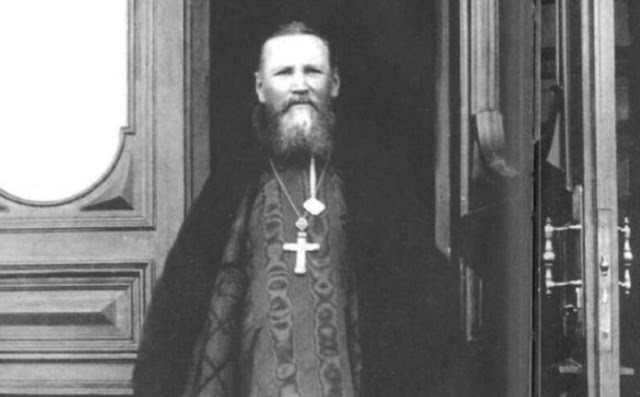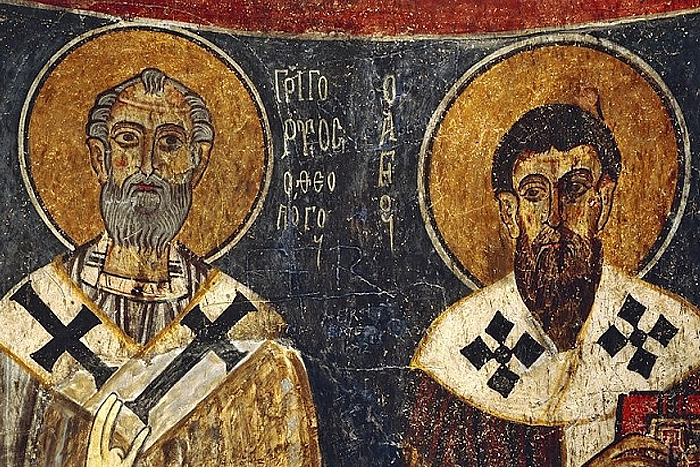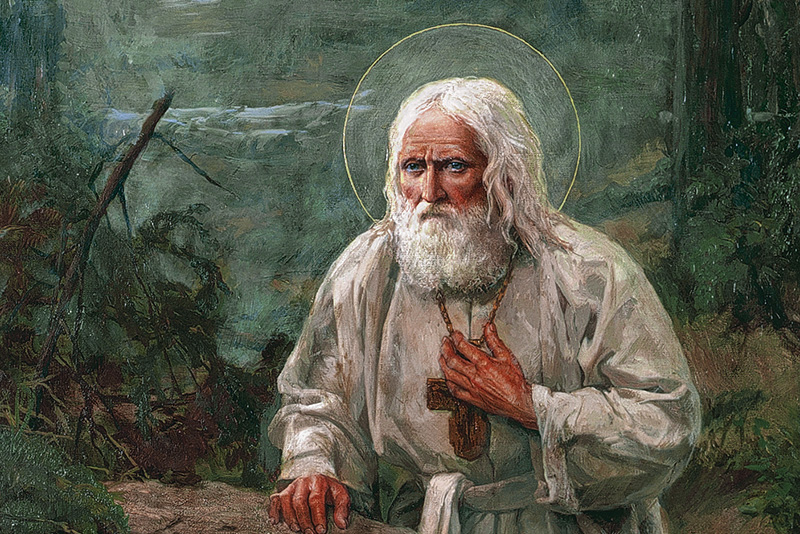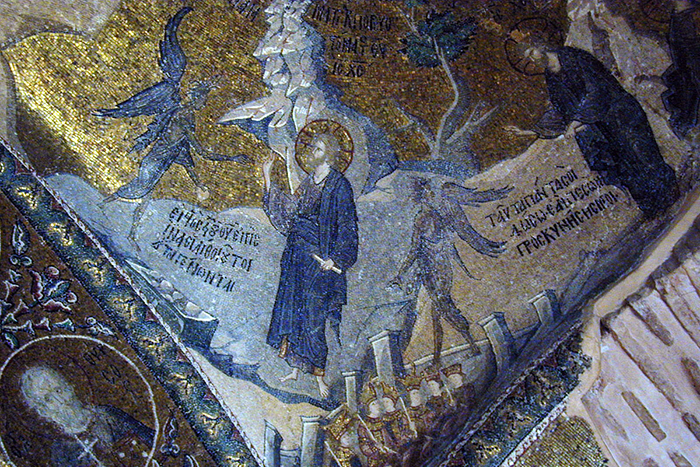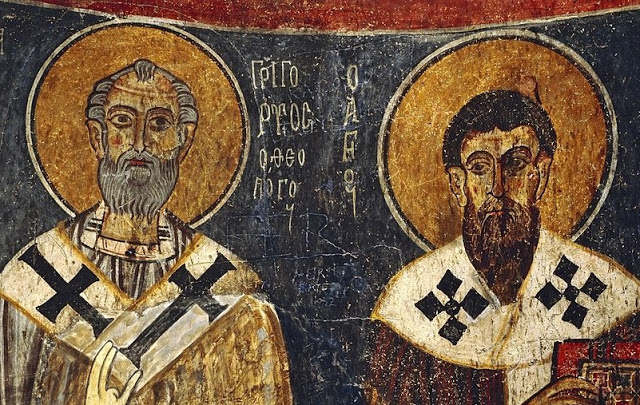
1
“When you sit down to eat, pray. When you eat bread, do so thanking Him for being so generous to you. If you drink wine, be mindful of Him who has given it to you for your pleasure and as a relief in sickness. When you dress, thank Him for His kindness in providing you with clothes. When you look at the sky and the beauty of the stars, throw yourself at God’s feet and adore Him who in His wisdom has arranged things in this way. Similarly, when the sun goes down and when it rises, when you are asleep or awake, give thanks to God, who created and arranged all things for your benefit, to have you know, love and praise their Creator.”
— St. Basil the Great, from Homily V. In martyrem Julittam. A different translation is quoted in the Prolegomena in Nicene and Post-Nicene Fathers Series II Volume 8
2
Sometimes the devil deceives us and makes us unable to be pleased with anything; however, one can celebrate all things in a spiritual manner, with doxology, and secure God’s constant blessing.
— St. Paisios of Mt. Athos, Elder Paisios of Mount Athos Spiritual Councils IV: Family Life
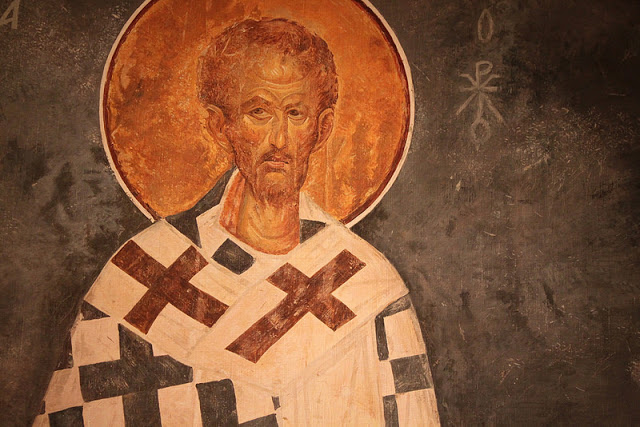
3
“Wouldest thou learn words of thanksgiving? Hearken unto the Three Children, saying, ‘We have sinned, we have transgressed. Thou art righteous, O Lord, in all that thou hast done unto us, because thou hast brought all things upon us by a true judgment’ (Prayer of Azariah; Book of Daniel LXX). For to confess one’s own sins, this is to give thanks with confessions unto God: a kind of thing which implies one to be guilty of numberless offenses, yet not to have the due penalty exacted. This man most of all is the giver of thanks.”
— St. John Chrysostom, Homily 3, Homilies on the Gospel of St. Matthew
4
Let us give thanks to God continually. For, it is outrageous that when we enjoy His benefaction to us in deed every single day, we do not acknowledge the favor with so much as a word; and this, when the acknowledgment confers great benefit on us. He does not need anything of ours, but we stand in need of all things from Him.
— St. John Chrysostom, Homily 25, Homilies on the Gospel of St. Matthew
5
“Happiness can only be achieved by looking inward and learning to enjoy whatever life has and this requires transforming greed into gratitude.”
— St. John Chrysostom

6
Fourth(type of prayer) are thanksgivings. Unspeakably moved by the memory of God’s past kindnesses, by the vision of what He now grants or by all that He holds out as a future reward to those who love Him, the mind gives thanks. In this perspective richer prayers are often uttered.
Looking with purest gaze at the rewards promised to the saints, our spirit is moved by measureless joy to pour out wordless thanksgiving to God.”
— St. John Cassian (The Conferences, Conf. Nine sects. 9, 11, 12, 13, 14)
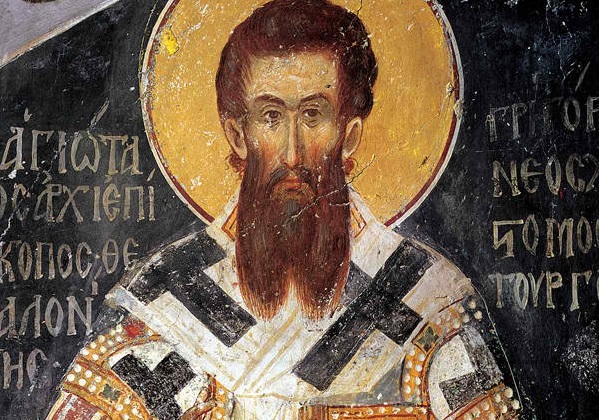
7
“Prayer changes from entreaty to thanksgiving, and meditation on the divine truths of faith fills the heart with a sense of jubilation and unimpeachable hope. This hope is a foretaste of future blessings, of which the soul even now receives direct experience, and so it comes to know in part the surpassing richness of God’s bounty, in accordance with the Psalmist’s words, ‘Taste and know that the Lord is bountiful’ (Ps. 34:8). For He is the jubilation of the righteous, the joy of the upright, the gladness of the humble, and the solace of those who grieve because of Him.”
– St. Gregory Palamas, The Philokalia Vol. 4
8
“We should give thanks to Him, as it is said: ‘In everything give thanks’ (I Thess. 5:18). Closely linked to this phrase is another of St. Paul’s injunctions: ‘Pray without ceasing’ (I Thess. 5:17), that is, be mindful of God at all times, in all places, and in every circumstance. For no matter what you do, you should keep in mind the Creator of all things. When you see the light, do not forget Him who gave it to you; when you see the sky, the earth, the sea and all that is in them, marvel at these things and glorify their Creator; when you put on clothing, acknowledge whose gift it is and praise Him who in His providence has given you life. In short, if everything you do becomes for you an occasion for glorifying God, you will be praying unceasingly. And in this way your soul will always rejoice, as St. Paul commends (cf. I Thess. 5:16).”
— St. Peter of Damaskos, “Book I: A Treasury of Divine Knowledge,” The Philokalia: The Complete Text (Vol. 3)
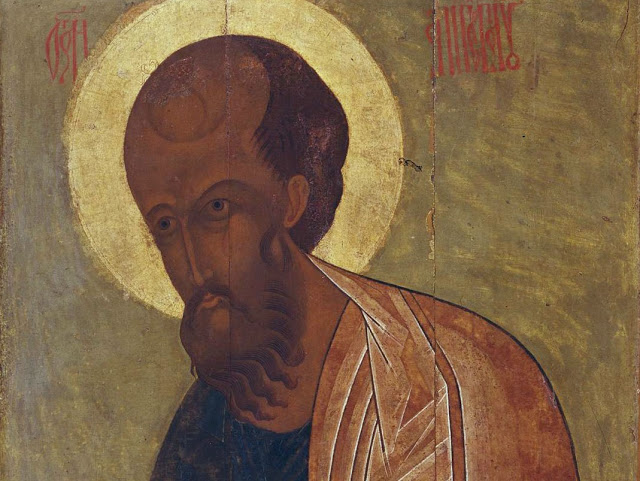
9
“Have no anxiety about anything, but in everything by prayer and supplication with thanksgiving let your requests be made known to God.”
— St. Paul, Philippians 4:6 (RSV)
10
“He who shall preserve the life bestowed upon him, and give thanks to Him Who imparted it, shall receive also length of days forever and ever. But he who shall reject it, and prove himself ungrateful to his Maker, inasmuch as he has been created, and has not recognized Him Who bestowed the gift upon him, deprives himself of the privilege of continuance forever and ever. And, for this reason, the Lord declared to those who showed themselves ungrateful towards Him: ‘If you have not been faithful in that which is little, who will give you that which is great?’ (cf. Lk. 16:11) indicating that those who, in this brief temporal life, have shown themselves ungrateful to Him Who bestowed it, shall justly not receive from Him length of days forever and ever.”
— St. Irenaeus, The Ante-Nicene Fathers Vol. 1
11
You should continually and unceasingly call to mind all the blessings which God in His love has bestowed on you in the past, and still bestows for the salvation of your soul. You must not let forgetfulness of evil or laziness make you grow unmindful of these many and great blessings, and so pass the rest of your life uselessly and ungratefully.
— St. Mark the Ascetic, Letter to Nicolas the Solitary, The Philokalia Vol. 1
12
“The truly intelligent man pursues one sole objective: to obey and conform to the God of all. With this single aim in view, he disciplines his soul, and whatever he may encounter in the course of his life, he gives thanks to God for the compass and depth of His providential ordering of all things.
— St. Anthony the Great, The Philokalia
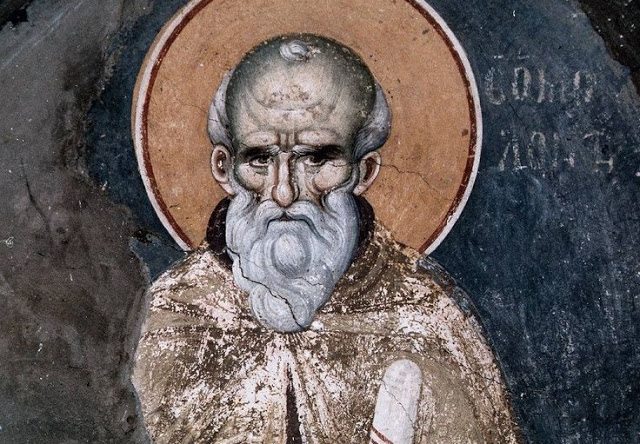
13
“Every genuine confession humbles the soul. When it takes the form of thanksgiving, it teaches the soul that it has been delivered by the grace of God.”
— St. Maximos the Confessor, Various Texts on Theology, the Divine Economy, and Virtue and Vice 3.62, The Philokalia: The Complete Text (Vol. 2)
14
For if God does not for a moment tire of giving us good things, how can we tire of thanking Him for these good things?”
— St. Nikolaj Velimirovic
15
“We must begin with thanksgiving for everything. The beginning of joy is to be content with your situation.”
– St. Ambrose of Optina
16
“When you are subjected to the malicious and furious violence of the passions, and to the harassments of the Devil, during the fulfillment of various works for God, accept these sufferings as sufferings for the name of Christ, and rejoice in your sufferings, thanking God.
— St. John of Kronstadt, My Life in Christ
